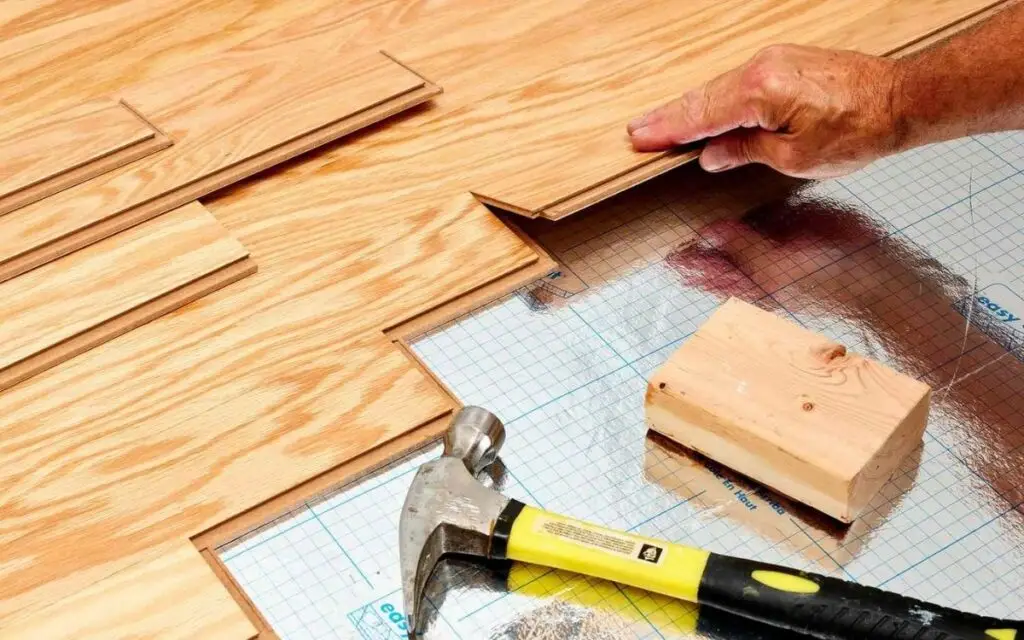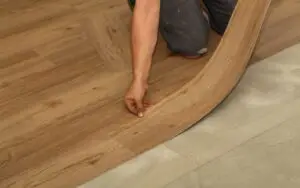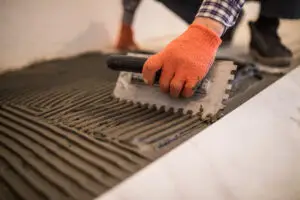Understanding the Basics of Flooring Cost Calculation
What Goes Into the Total Cost
Calculating the total cost of a flooring project involves several factors beyond just the price of the materials. It’s crucial to understand all these elements to create an accurate budget and avoid unexpected expenses. The main components include the cost of flooring materials, the cost of labor for installation, subfloor preparation, and any additional expenses that might arise, such as removing the old floor. Having a clear understanding of these elements is vital to ensure a cost-effective and well-managed project. It’s important to consider all these variables for a realistic budget. Hiring a professional service to help in calculating the final cost could save you money and time.
Importance of Accurate Measurements
Accurate measurements are fundamental to ensure you order the correct amount of flooring materials. Incorrect measurements can result in either not having enough material to complete the job, leading to costly delays, or having excess materials, which can be a waste of money. When measuring, it’s important to account for all areas where flooring will be installed, including closets, hallways, and any irregular spaces, such as bays or niches. Professional installers are meticulous about measurements, and this level of precision is part of what you get when hiring a professional to avoid miscalculations.
Key Factors Influencing Flooring Material Costs
Types of Flooring Materials (Hardwood, Laminate, Tile, Carpet)
The type of flooring material you choose significantly impacts the total cost of your project. Hardwood, laminate, tile, and carpet each have their own price ranges, influencing factors, and specific installation considerations. Hardwood is generally more expensive than laminate, as its installation requires more skill and precise technique. Tile, on the other hand, has a more expensive installation process because of the need for grout and leveling. Understanding each material’s costs can help you make an informed decision based on your budget and desired aesthetic. Professional services can offer valuable insights about different flooring options, ensuring you choose the best material for your needs and budget.
Cost Comparison of Different Materials
Comparing the costs of different flooring materials will help you get a clearer picture of how your budget may be affected. For instance, carpet is generally the most budget-friendly option, while natural stone or high-end hardwood will be at the more expensive end of the spectrum. Laminate is a good middle option, providing durability and a wood-like aesthetic at a lower cost. Consider how the material will perform in the areas it will be placed, ensuring you choose a material that meets your specific requirements. A professional flooring installation service can provide precise cost estimates for each material, helping you make the best decision for your space and budget.
Quality and Brand Impact on Price
The quality and brand of the flooring material also affect the overall cost of your project. Higher-end brands often come with better warranties and more durable materials, which will increase the overall price per square foot. Cheaper materials could seem like a good deal initially, but in the long run, they might need to be replaced sooner, leading to more expenses. Professional services can guide you in selecting materials that offer the best balance between quality and price, ensuring your investment yields lasting benefits.
Calculating Material Needs
Calculating the required amount of flooring materials involves more than just determining the square footage of your rooms. You will have to account for waste from cuts and miscalculations and for any extra material to be stored as replacement. A good rule of thumb is to add a certain percentage to your measurements, ensuring you will have enough materials and not run short.
How to Measure Room Size and Square Footage
Accurately measuring your rooms is the first step in calculating your material needs. Start by measuring the length and width of each room, then multiply those numbers to find the area in square feet. If your room has irregular shapes, break it into sections and measure each individually, then add them up to determine the total area. Precise measurements can prevent costly errors and ensure a seamless installation. Professional flooring installers are experts in this process, ensuring the correct amount of materials are ordered every time.
Accounting for Waste and Extra Material
When ordering flooring materials, you should always account for waste, which occurs during installation due to cuts and irregularities. It is wise to add extra material to the total amount needed, generally about 5-10% depending on the layout. This extra material will also come in handy if you need to replace damaged pieces later. Professional installers have a better estimation of material waste and are able to order only what’s necessary, minimizing costs for you.
Labor Costs for Flooring Installation
Average Labor Rates in Your Area
Labor costs for flooring installation vary from one area to another. Factors such as cost of living, demand for services, and type of installation can affect labor rates, and they can fluctuate according to those factors. It is important to research the average labor rates in your area to get a realistic estimation of your project costs. Hiring a professional installer who is transparent about their labor rates ensures you are not overcharged.
Factors Affecting Labor Cost
Several factors can affect the cost of labor for flooring installation. For instance, the complexity of the layout, the type of flooring material, and the preparation needed can affect the total cost. The amount of time it takes and the number of people necessary for the job will affect the cost as well. Professionals usually offer detailed quotes that break down the costs of labor, helping you see where your money goes.
Professional vs. DIY Installation Considerations
When planning a flooring project, it is imperative to consider the pros and cons of hiring a professional versus doing it yourself. While DIY might appear to save money upfront, it might lead to more expenses and issues down the line. Professionals are familiar with different flooring types, subfloor conditions, and installation techniques. Hiring a professional is often more cost-effective in the long run because of the quality and speed of the work.
Time Investment and Skill Level
DIY projects can be very time-consuming, especially if you have no prior experience in flooring installation. This can lead to wasted weekends or even longer timeframes, which can be frustrating. Moreover, if you lack the skills and knowledge, the final outcome may not be as perfect as desired. A professional installer has the expertise, tools, and experience to finish the job quickly and efficiently, without wasting any time.
Potential Risks of DIY Flooring Installation
Improper flooring installation can lead to significant issues down the line, including uneven surfaces, squeaky floors, and damaged materials. These issues could lead to needing repairs, increasing the overall cost of the project. Moreover, you could end up with warranties voided from any damage caused by incorrect installation. Professional installers reduce risks of these errors by ensuring the flooring is installed perfectly and correctly, following the best practices.
Additional Expenses to Consider
Subfloor Preparation and Repair
Subfloor preparation is a critical step in any flooring project. The subfloor must be level, clean, and free of any moisture to ensure the new flooring is properly installed. Issues like cracks, unevenness, and rot in the subfloor could require additional labor and material costs. Ignoring this step might compromise the integrity and lifespan of your new flooring. A professional installer is well aware of these issues and can address them professionally, before starting the installation, to prevent future issues.
Removal and Disposal of Old Flooring
Removing and disposing of old flooring can be a time-consuming and physically taxing task. Depending on the material, it may involve special tools and equipment and the need to follow specific disposal guidelines. This step is often underestimated, but a professional service can take care of everything properly and efficiently, ensuring the old material is disposed of correctly.
Moving Furniture and Appliances
Before starting the installation, all furniture and appliances must be moved out of the work area. This can add to the time and labor costs, especially if you have large or heavy items. Hiring a professional installation service often includes assistance in moving furniture, which can make the process easier and more convenient. This also prevents accidental damages to your belongings, adding another advantage to the overall process.
Trim, Molding, and Baseboards
Trim, molding, and baseboards are essential for a finished, polished look and to protect the edges of your flooring. These items might add extra costs to the project budget, but they are necessary for achieving a professional look. Professionals can accurately install these, and their cost is usually included within the general quote they provide.
Underlayment and Moisture Barriers
Underlayment and moisture barriers are also crucial when installing new flooring, as they provide cushioning and protection. They are also essential for reducing noise and preventing moisture damage, and it’s highly recommended to install them. Professionals are aware of the importance of these elements and will ensure that the correct ones are installed before laying down your new flooring.
Permits and Inspections
In certain areas, you might need to obtain permits and undergo inspections before you begin any flooring project, especially for major renovations. Professionals are usually aware of local building codes and can help you manage the permitting process, ensuring your project is up to code.
DIY vs Professional Flooring Installation Services
Case Study 1: The Costly DIY Mistake
A homeowner decided to install laminate flooring on his own to save on labor costs. They miscalculated the amount of material needed, and they had to order extra which added to the cost. Additionally, their inexperience with cuts and installation techniques led to uneven and poorly finished floorings, with gaps that ruined the flooring. The homeowner ended up hiring a professional to repair the DIY errors and re-install everything correctly, costing more than if he had hired someone from the beginning.
Case Study 2: Benefits of a Professional Installation
Another homeowner hired a professional flooring installer to install hardwood flooring in her living room. The installer provided a detailed quote that covered all aspects of the project, including material costs, labor, subfloor preparation, and removal of the old flooring. The installation was done on time and within the budget, resulting in a beautiful, long-lasting floor with a professionally finished look.
Risks of Improper Installation
Improper flooring installation can lead to several issues such as uneven flooring, which can be a hazard, gaps and squeaky floors, all of which will eventually need to be repaired, adding extra cost. These are some of the risks you take when not hiring a professional flooring company.
Long-Term Cost Savings with Professionals
While DIY installation may seem like a money-saving option in the short term, it often leads to costly errors and long-term issues that can end up costing a lot more than hiring a professional from the start. Professional installers provide warranties and guarantees for their work, and this will give you peace of mind, knowing that your project has been done correctly and that your investment is protected.
Final Considerations
Budgeting for Unexpected Costs
It is always wise to budget for unexpected costs when you’re planning a flooring project. Unforeseen issues can arise during demolition or installation, such as damaged subfloors or extra expenses for trims and moldings, so having some wiggle room in your budget is essential. A professional installer can assess all potential issues in advance and offer a more precise quote, minimizing the possibility of running into any surprises.
Getting Multiple Quotes from Professionals
Getting multiple quotes from different professionals is an essential part of planning your project. This way you can compare prices and see what’s included in each quote, giving you the best cost benefit for your specific needs. This will also ensure you are paying a fair price for the work being done.
The Importance of Choosing the Right Installer
Choosing the right installer is essential for ensuring that the work is done correctly. A good installer will have a great portfolio of past projects and have good references. It’s wise to check reviews before choosing the right person for your flooring project.
Reading Reviews and Checking References
Before hiring a professional flooring installation service, reading reviews and checking references is essential. This will give you a good insight into the quality of work they provide and ensure you hire a person that will deliver on their promises, making sure you’ll have a smooth installation process and a beautiful new floor.
FAQs & Answers
While DIY flooring installation might seem like a cost-saving option, it often leads to hidden expenses and potential problems down the road. Inexperienced installers can make mistakes that not only ruin expensive materials but also create a need for costly repairs. Furthermore, professional installers have the right tools, expertise, and techniques to ensure a long-lasting, high-quality installation. Hiring a professional might be more costly upfront, but it can prevent major issues and expenses later on, while also ensuring the job is done right the first time around.
The cost of flooring materials can vary dramatically, depending on the type of material, its quality, and the brand. For example, hardwood flooring is often more expensive than laminate or vinyl, while high-end tiles or stone flooring will be at the higher end of the price range. It's important to research the different options available and obtain detailed quotes from flooring suppliers. This will help you understand what you're paying for and ensure the material aligns with your budget and style preferences. A professional installer can help you navigate these choices, making sure you get the best value for your investment.
Beyond the cost of the flooring materials and labor, there are several other expenses to keep in mind. These include subfloor preparation or repair, old flooring removal and disposal, moving furniture, and the cost of trims, molding, and baseboards. Also, materials such as underlayment, moisture barriers, permits and inspections can also add to the total budget. These hidden costs can quickly increase the project total, but a professional installer can help identify these costs early and provide a more accurate estimate. This will ensure you don't run into surprises during the project.
Hiring a professional flooring installer offers significant advantages over DIY attempts, such as faster installation, fewer mistakes, and avoiding costly repairs and replacements. Professionals have years of experience and can tackle even the most challenging installations with speed and precision. This expertise leads to a superior result, not to mention reduced stress and a higher overall quality. Also, a professional installation is backed by warranties, guaranteeing that the job is done right, giving you peace of mind.
To get the best price for your flooring installation, it's essential to do your research and gather multiple quotes from different installers. Take your time and check their references, review their past projects, and ask detailed questions about their process. Don’t be afraid to negotiate a price and compare the different aspects of each quote, not just the total cost. You should also consider the quality of the materials and the installer's expertise. While the cheapest option may seem appealing, investing in a professional with a solid reputation can ultimately save you money by ensuring a high-quality, durable, and long-lasting flooring installation.





